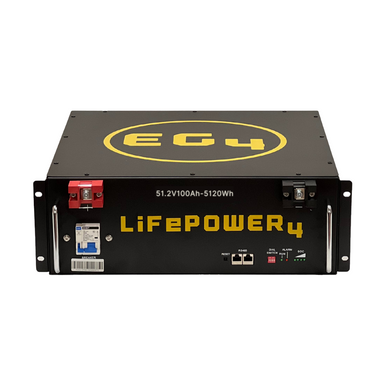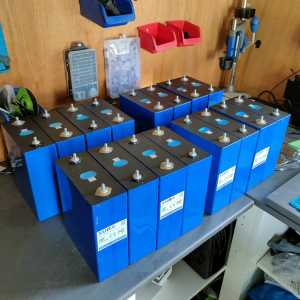With my Intellegent Octopus rates set at 7.5p and 40p I realised batteries would save me £1000 a year, more if I switched from gas central heating. I looked at buying UK ready built batteries. Cheapest I could find were £1600 for 5.1kW. Then looked at Alibaba, managed to find good quality 5.1kW ones from a reliable manufacturer for £1000 tax and shipping included. I was about to buy these when I came across the Seplos 48v 280 to 300ah self build kit for $600 taxes and shipping included. You can buy 16 48v 300ah Lifepo4 cells for $1600, shipping and tax is $350, add another $100 for credit card fees. The total cost of a self built 48v 300ah 15kW battery including case, BMS, 400A fuse and cells is £2300. The total build time is around 3 hours and very hard to get wrong. The BMS will communicate with most inverters. If there is ever a problem with the battery you can fix it yourself by swapping a cell or getting a new BMS.

 m.alibaba.com
m.alibaba.com

 m.alibaba.com
m.alibaba.com

Brand New Grade A 302ah Lithium Ion Lifepo Lfp Cell Best Catl 3.2v 320ah 310ah 280ah 16s1p 48v Lifepo4 Battery Pack Manufacturer - Buy Manufacturer Brand New 302ah Lithium Ion Lifepo Bat Cell Catl Grade A 3.2v 320ah 310ah Lifepo4 Battery catl 310ah 302ah Lithium Iron Phosphate Cell Lifepo4 Lithium Ion Battery For Diy Solar Storage 48v 3.7v 30ah 40ah 50ah 51ah 70ah 100ah 126ah 150ah Lithium Ion Ncm Prismatic Battery Cells For Diy 12v 24v 48v Battery Pack Product on Alibaba.com
Brand New Grade A 302ah Lithium Ion Lifepo Lfp Cell Best Catl 3.2v 320ah 310ah 280ah 16s1p 48v Lifepo4 Battery Pack Manufacturer - Buy Manufacturer Brand New 302ah Lithium Ion Lifepo Bat Cell Catl Grade A 3.2v 320ah 310ah Lifepo4 Battery catl 310ah 302ah Lithium Iron Phosphate Cell Lifepo4...

Grade A 280ah 8000cycle Lifepo4 Lithium Catl Eve Lf280k 3.2v 310ah Prismatic Lfp Cells 12v 24v 48v Off Grid Solar Energy Battery - Buy Grade A Ev 280ah Lifepo4 Prismatic Battery Cells ev 3.2v 280ah Lifepo Prismatic Battery catl Solar Power Use Ev And 48v Home Energy Storage System eve Product on Alibaba.com
Grade A 280ah 8000cycle Lifepo4 Lithium Catl Eve Lf280k 3.2v 310ah Prismatic Lfp Cells 12v 24v 48v Off Grid Solar Energy Battery - Buy Grade A Ev 280ah Lifepo4 Prismatic Battery Cells ev 3.2v 280ah Lifepo Prismatic Battery catl Solar Power Use Ev And 48v Home Energy Storage System eve Product on...







